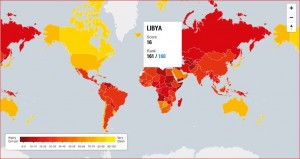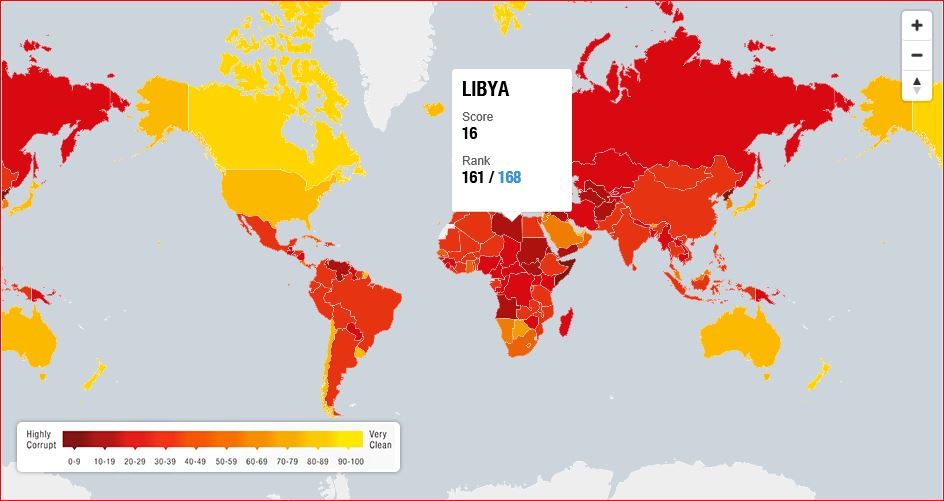By Sami Zaptia.

London, 22 April 2016:
Libya has scored 16 out of 100 and ranked a lowly 161st out of 168 in . . .[restrict]Transparency International’s latest 2015 Corruption Perception Index.
The internationally established index measures the perceived levels of public sector corruption worldwide. It reports that Libya has a ‘’highly’’ corrupt public sector and that this has ‘’deteriorated’’ since the 2014 index was released.
In the 2015 Index Libya is ranked equal with Iraq but just above the bottom six of Angola, South Sudan, Sudan, Afghanistan, North Korea and bottom of the pile Somalia. However, Libya is more corrupt than the rest of the states of Africa and MENA.
It is ranked as more corrupt than devastated Zimbabwe and war torn Yemen and Syria for example.
Commenting on Libya’s low ranking, Libya’s Tripoli-based Audit Bureau attributed Libya’s lack of transparency to eight main reasons.
The first reason is the political division and conflict and the duplication of authorities that that division and conflict has led to. The lack of an active national anti-corruption commission as an authority to develop a national strategy to combat corruption was the second.
The Audit Bureau said that the weak application of laws and regulations and their non-activation was another. It also felt that there is an absence of transparency and accountability systems in Libya’s state institutions.
The difficult economic situation that Libya is currently going through as a result of declining oil production which is central to financing the dominant public sector in a rentier state such as Libya. This has been compounded by lower international crude oil prices and rising living costs, have all led to increased types of administrative and financial corruption.
The Audit Bureau also said that there is no Libyan legislation in place to enhance the combating of corruption by the legislature. The absence of serious political will to fight corruption as well as customs, traditions and cultural heritage were the other factors contributing to high public sector corruption in Libya, the Audit Bureau concluded in its commentary. [/restrict]








